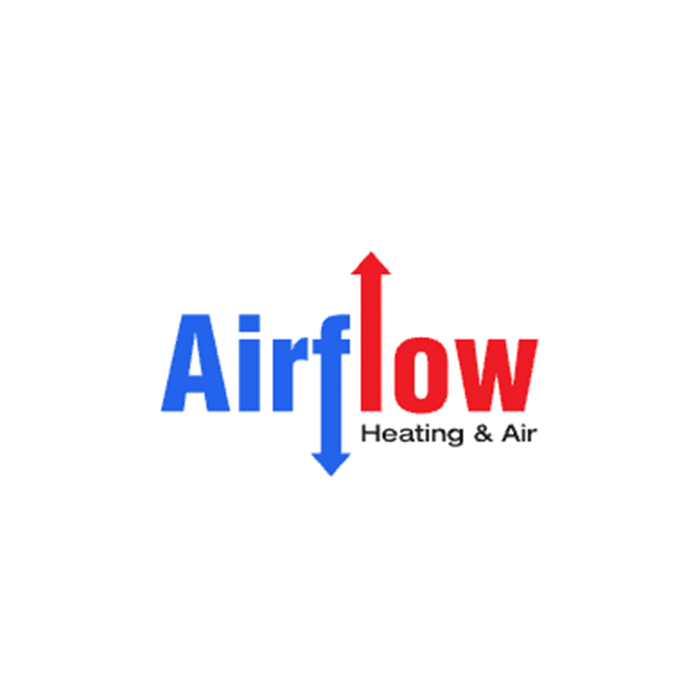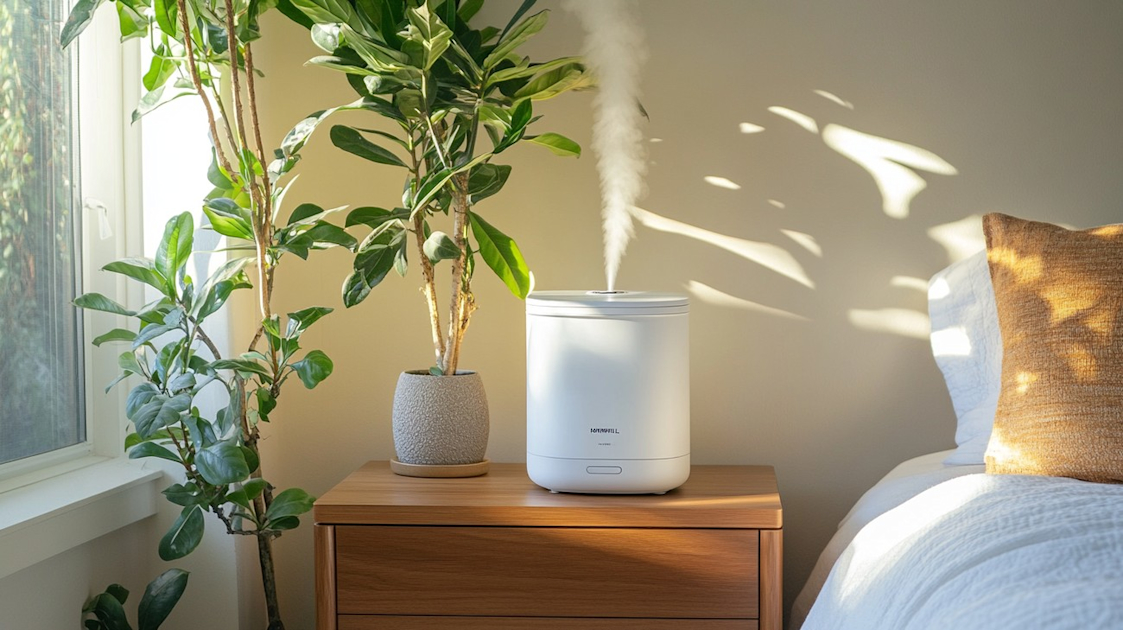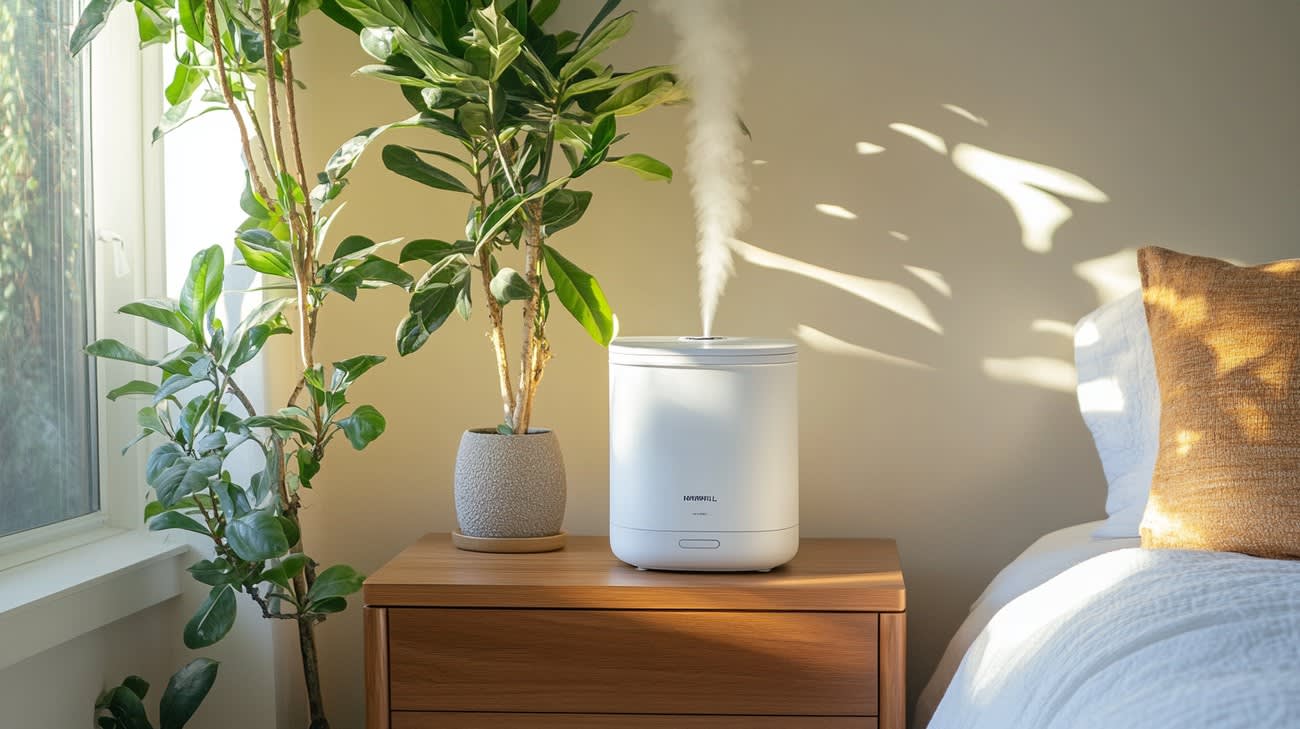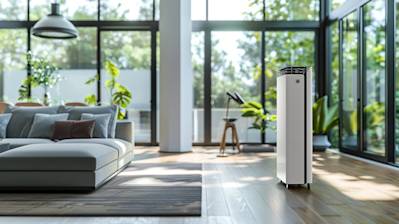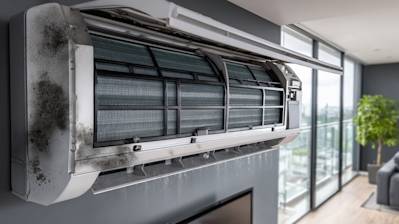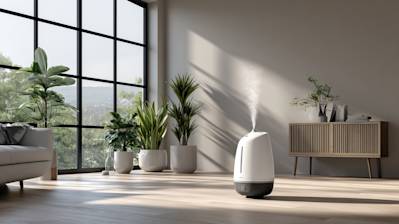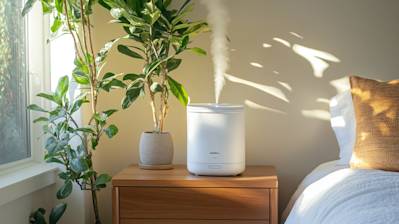Indoor air quality significantly affects our wellbeing and comfort, especially during colder months. While there are several ways to enhance air quality, using a humidifier remains inarguably one of the most effective methods. In this exclusive post, we delve into the innovative world of humidifiers, focusing our spotlight on the globally acclaimed Honeywell Humidifier. From understanding its functionality to exploring its varied models, we skim across every facet that makes this device a prime choice for homeowners and offices worldwide.
Honeywell Humidifier: Upping the Ante in Indoor Air Quality
As a renowned name in the industry, Honeywell has a range of products for improving air quality, chief among them being their extensive array of humidifiers. Humbly nestled within your living or bedroom space, the Honeywell Humidifier works diligently to maintain optimum humidity levels, keeping health-related issues at bay while ensuring seamless comfort.
In this blog post, we're going to give you an in-depth insight into:
- How Honeywell Humidifiers work
- Different Types and Models of Honeywell Humidifiers
- The Benefits of Owning a Honeywell Humidifier
- Cleaning and Maintenance Tips for your Honeywell Humidifier
Understanding How Honeywell Humidifiers Work
Essentially, a Honeywell Humidifier regulates the moisture level in your space, thereby preventing dry air issues such as chapped skin, allergies, and respiratory problems. The device uses a water reservoir that adds moisture to the air through evaporation. This increment in indoor humidity helps alleviate some common discomforts associated with dry climates or colder weather.
The user-friendly controls of the Honeywell Humidifier allow easy adjustments to your room's humidity, promoting healthier, more comfortable environments. It's an efficient appliance that proves beneficial year-round, creating a conducive atmosphere conducive for work or relaxation.
Exploring the Types & Models of Honeywell Humidifiers
Honeywell boasts an abundance of humidifier models tailored to meet different needs and lifestyles. Each model is designed with precision, promising excellent performance, and superior user experience. Here are some of the popular categories of Honeywell Humidifier:
1. Honeywell Cool Mist Humidifier: These humidifiers release a refreshing cool mist that increases the moisture in the air, making it ideal for dry and hot climates.
2. Honeywell Warm Mist Humidifier: Perfect for winter usage, these release a soothing warm mist, helping combat dryness caused by indoor heaters.
3. Honeywell Ultrasonic Humidifier: This model uses ultrasonic vibration technology to produce mist, resulting in a quiet, energy-efficient operation.
The Benefits of Owning a Honeywell Humidifier
While there are umpteen humidifiers to choose from, the Honeywell Humidifier stands out for a plethora of reasons. Here are some of the unmatched benefits it offers:
Consistent Performance: Honeywell Humidifiers are known for their consistent performance, efficiently maintaining your room's moisture levels.
Health-friendly: They help prevent dry skin, chapped lips, nose bleeds, and other health problems caused by dry air.
Aesthetically Pleasing: Available in various sizes and designs, Honeywell Humidifiers effortlessly blend into your home décor.
Easy to Use and Maintain: With user-friendly controls and easy maintenance, these humidifiers are an absolute breeze to use.
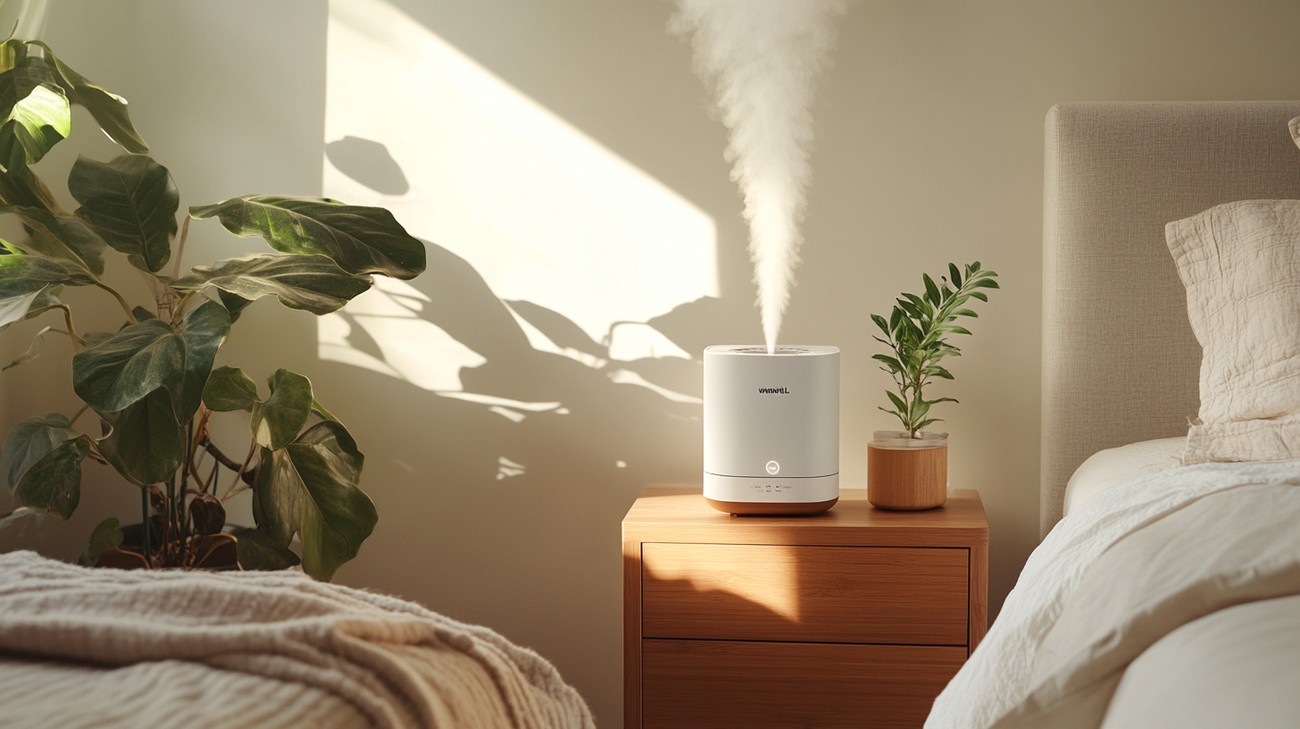
Frequently Asked Questions about Honeywell Humidifier
Can I use tap water in my Honeywell Humidifier?
While it is possible to use tap water in your Honeywell Humidifier, we recommend using distilled or demineralized water. Tap water often contains minerals that can create deposits inside the device and may decrease the unit’s life span. Moreover, these minerals could promote bacterial growth, and when they’re dispersed in the air, they could cause white dust on your furniture.
How often should I refill my Honeywell Humidifier?
How often you need to refill your Honeywell Humidifier depends on various factors, including the model, the unit's settings, and the dryness of the air in your home. Generally, it is advisable to check the coolant level daily or every other day. For greater efficiency, refill the unit when the water level's low.
How can I clean my Honeywell Humidifier?
First, disconnect your Honeywell Humidifier from the power outlet. Remove the tank from the base and discard any remaining water. You can clean the tank by filling it halfway with water and a small amount of mild dish soap. Secure the cap, shake the solution, and rinse thoroughly until no soap remains.
For the base, wipe it down with a soft, damp cloth. Do not submerge the base in water since it contains electrical components. Let all parts air dry before reassembling and using the humidifier. Remember to clean your Honeywell Humidifier once a week, depending on the hardness of your water and usage frequency.
Why is my Honeywell Humidifier not misting?
If your Honeywell Humidifier isn't misting, it may be due to some issues including a cracked or dry wick filter, low water level, or a problematic fan motor. Always make sure your unit has plenty of water, the filter is in good condition, and the fan is working. If the problem persists, contact Honeywell customer service for technical support.
Can I put essential oils in my Honeywell Humidifier?
Most Honeywell Humidifier models do not support the use of essential oils directly in the humidifier. The oils could damage the humidifier parts, leading to malfunctions. If you want to use essential oils, consider getting a separate diffuser or check if your Honeywell model supports this feature.
How frequently should I replace my Honeywell Humidifier filter?
Generally, you should replace your Honeywell Humidifier filter every 30-60 days. However, the frequency can depend on factors like the hardness of your water, unit usage, and if you have pets or smokers in the house. If the filter color darkens or the humidifier performance decreases, it might be time to replace the filter.
Is Honeywell Humidifier safe for babies?
Yes, Honeywell Humidifiers are typically safe for babies. Using a Honeywell Humidifier can help maintain an optimal humidity level in the nursery, preventing dry skin and congestion among infants. However, always make sure it's cleaned regularly to prevent bacterial growth, and kept out of reach to ensure your baby's safety.
How can I restore the optimal performance of my Honeywell Humidifier?
Following the guidelines for proper usage and maintenance can help preserve your Honeywell Humidifier’s functionality. This involves regular cleaning, frequently changing the filter, using recommended water types, and properly storing the unit when not in use. Also, if you encounter any issues, promptly contact Honeywell's customer service.

Pros
Easily Maintain Humidity Levels
Honeywell humidifiers offer a seamless way to manage and control the level of humidity in your home. This can be particularly useful during the winter months when heated indoor air can get exceptionally dry. Humidifying your space can help to alleviate physical discomforts like dry skin, chapped lips, and dry throat. It can also have benefits for your home, preventing wooden furniture and floors from drying out.
Variety of Options
Honeywell offers a wide selection of humidifiers to cater to various consumer needs. These include cool mist, warm mist, and ultrasonic humidifiers. Each offering has unique benefits. For example, cool mist humidifiers can help lower room temperature while warm mist humidifiers are great for cold weathers. Ultrasonic humidifiers are almost silent in operation which can be great for bedrooms.
Long-Lasting Design
Most Honeywell humidifiers offer an impressive lifespan. Many users report their units operating efficiently even after several years of use. This speaks volumes abount the product's build quality and reliability.
Easy Maintenance and Cleaning
Honeywell designs their humidifiers with user convenience in mind. These units often feature wide tank openings which simplify the cleaning process. Some models offer dishwasher safe parts, making maintenance even more effortless.
Useful Extra Features
Several Honeywell humidifiers come equipped with advanced features to make their operation more convenient. These include automatic shut-off when the desired humidity level is reached or when the water tank is empty, adjustable mist control, and built-in hygrometers to measure the humidity level in your room.
Cons
Noise Levels
While not all Honeywell humidifiers are noisy, several users have noted that some models tend to produce a noticeable noise during operation, particularly those that do not use ultrasonic technology. This may pose a disturbance especially at night for light sleepers.
Initial High Cost
While Honeywell humidifiers are long-lasting and durable, this quality comes at a price. Several models in their line-up are more expensive than their counterparts from other brands. Therefore, the initial cost can be a barrier for some customers, although this cost can be justified in terms of the product's longevity and performance.
Replacement Parts
The need to replace filters and other parts is a typical aspect of maintaining a humidifier. However, some users have noticed that finding replacement parts for Honeywell humidifiers can be difficult and sometimes expensive. Furthermore, some particular models require using Honeywell's proprietary filters which means cheaper alternatives can't be used.
Water Tank Size and Runtime
While several Honeywell humidifiers have large water tanks capable of providing long runtime, there are models with relatively smaller tanks that need frequent refilling especially at high mist settings. This can be an inconvenience, particularly for users who prefer running their humidifiers overnight or continuously during the day.
Size and Aesthetic Appeal
While functionality is paramount, aesthetic appeal and the unit's footprint are important for many consumers. Some Honeywell humidifiers have received criticism for being bulky or not meeting aesthetic preferences. Similarly, larger units may take up considerable space which can be a challenge in smaller rooms.

Myths / Misconceptions About the Honeywell Humidifier
When it comes to Honeywell humidifiers, one would think that a product as unassuming as a humidifier would be free from misconceptions, but you'd be surprised at how much misinformation is floating around out there. It's time to clear the air – or, humidify it, if you will – about some common myths surrounding Honeywell humidifiers.
Myth 1: All Humidifiers are the Same
As a manufacturer of a wide range of humidifiers, Honeywell is often the subject of the misconception that all humidifiers are the same. Many believe that buying a cheaper model, regardless of brand, will perform the exact same function as a more expensive model. This is incorrect.
Understanding Different Types of Honeywell Humidifiers
Honeywell offers several types of humidifiers designed for varying needs and spaces. These include Cool Mist, Warm Mist, and Evaporative humidifiers. Each type operates differently and offers distinct advantages.
Cool Mist Humidifiers: These use a wick filter to absorb water from the tank, and a fan then blows cool air over the wick to distribute moisture into the air.
Warm Mist Humidifiers: These use heating elements to boil water and produce a warm steam, which is then released into your home.
Evaporative Humidifiers: Working like a cool mist humidifier, these have a fan that draws in dry air, passes it over a moisturized wick filter, and expels moist air back out.
Myth 2: Honeywell Humidifiers Require Constant Maintenance
It's a common belief that Honeywell humidifiers require constant maintenance to work effectively. While it is true that regular cleaning and maintenance is crucial for any humidifier to perform optimally, Honeywell has designed their humidifiers to be user-friendly and low-maintenance.
The Truth About Honeywell Humidifier Maintenance
Most Honeywell humidifiers come with dishwasher-safe parts and wick filters that are easily replaceable. Additionally, many Honeywell humidifier models feature an automatic shut-off when the tank is empty, protecting your machine from damage. So, while yes, you do need to perform regular cleaning to prevent mold and bacteria growth, the overall maintenance effort required is considerably low.
Myth 3: Honeywell Humidifiers Promote Mold Growth
One particular myth is that Honeywell humidifiers are a breeding ground for mold. However, the truth is that any humidifier – not just those from Honeywell – could potentially encourage mold growth if not properly maintained.
The Fact about Humidifiers and Mold Growth
All humidifiers need to be regularly cleaned and dried to prevent mold and bacteria growth. Honeywell humidifiers come with cleaning instructions and recommendations to prevent such issues, and many models are equipped with Ultraviolet (UV) technology to kill up to 99.9% of bacteria, mold, fungus, and viruses in the water.
Myth 4: Using a Honeywell Humidifier Will Skyrocket Your Energy Bill
Another common misconception is that Honeywell humidifiers are energy-guzzlers.
Are Honeywell Humidifiers Energy Efficient?
In actuality, Honeywell humidifiers are designed to be energy efficient. For example, their Evaporative Humidifiers are highly energy-efficient as they use the natural evaporative process, which is a self-regulating process and requires less energy. The energy consumed by Honeywell humidifiers is relatively negligible, especially when compared to other larger appliances.
Myth 5: Honeywell Humidifiers Produce too much Noise
Many people believe that all humidifiers, including Honeywell's, are noisy and disruptive, particularly when used at night.
Debunking Noise Levels in Honeywell Humidifiers
While some noise is unavoidable, primarily due to the fans in certain models, Honeywell specifically designs their humidifiers with quiet operation in mind. Many models boast a 'quietcare' technology, promising operation that is up to 25% quieter than rival humidifiers, offering a peaceful and comfortable environment.
Now that we've cleared up these myths about Honeywell humidifiers, you can make an informed decision about whether one of these devices is right for your home or office.
Summary
Honeywell humidifiers have certainly carved out a niche in the market, thanks to their durability, performance, and innovative design. You'll get value for your money because these devices do an excellent job in maintaining proper humidity levels at home or in your office. Advanced features for improved efficiency and a healthier indoor atmosphere set Honeywell humidifiers apart from the competition.
The Honeywell humidifier is a well-rounded package in the world of comfort appliances. From its robust construction to user-friendly controls, every facet of this humidifier is designed keeping the user's convenience in mind. And with an array of different models to choose from, everyone can find a unit that suits their needs and budget.
So, whether you're dealing with dry skin, allergies, or simply want to enhance the comfort of your indoor environment, a Honeywell humidifier could be the answer. These humidifiers prove that you don't need to compromise on quality for the sake of affordability. With a Honeywell humidifier, you can breathe easier and live better.
About AirFlow Heating & Air
AirFlow Heating & Air is Sacramento's go-to local business for top-quality heating and air conditioning services. Born and raised in Sacramento, CA, we've established ourselves as a vital part of the community, providing stellar HVAC repairs, installations, and maintenance to our fellow residents. With deep roots in the region and a dedicated team of HVAC professionals, we understand the unique needs of Sacramento homes. Our commitment to excellent customer service, emphasis on utmost customer satisfaction, and high-quality workmanship set us apart in the ever-competitive HVAC industry. When the California heat gets too much or the cool winter breeze kicks in, the people of Sacramento know they can rely on AirFlow Heating & Air.
